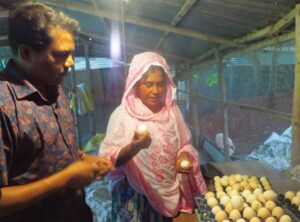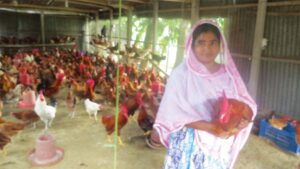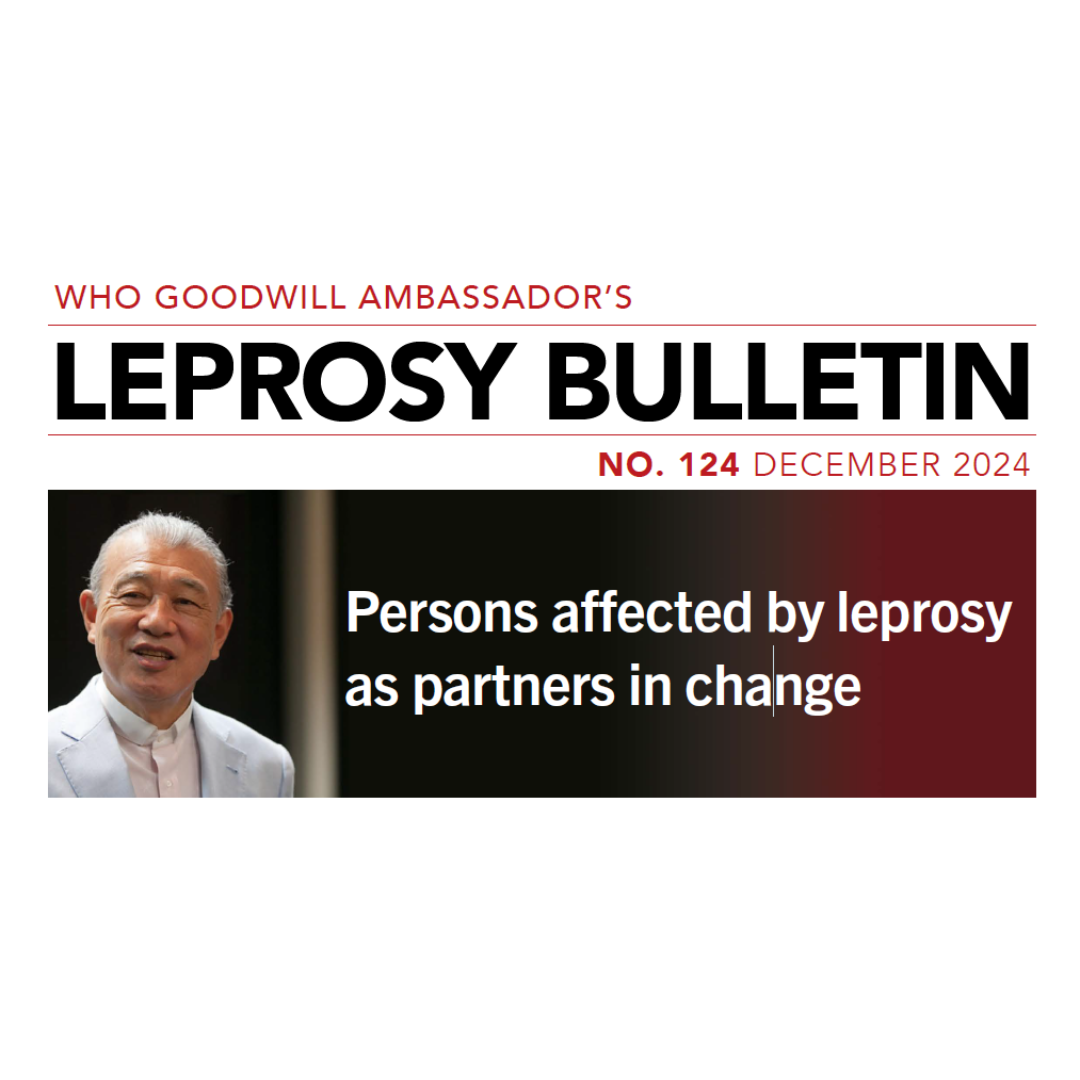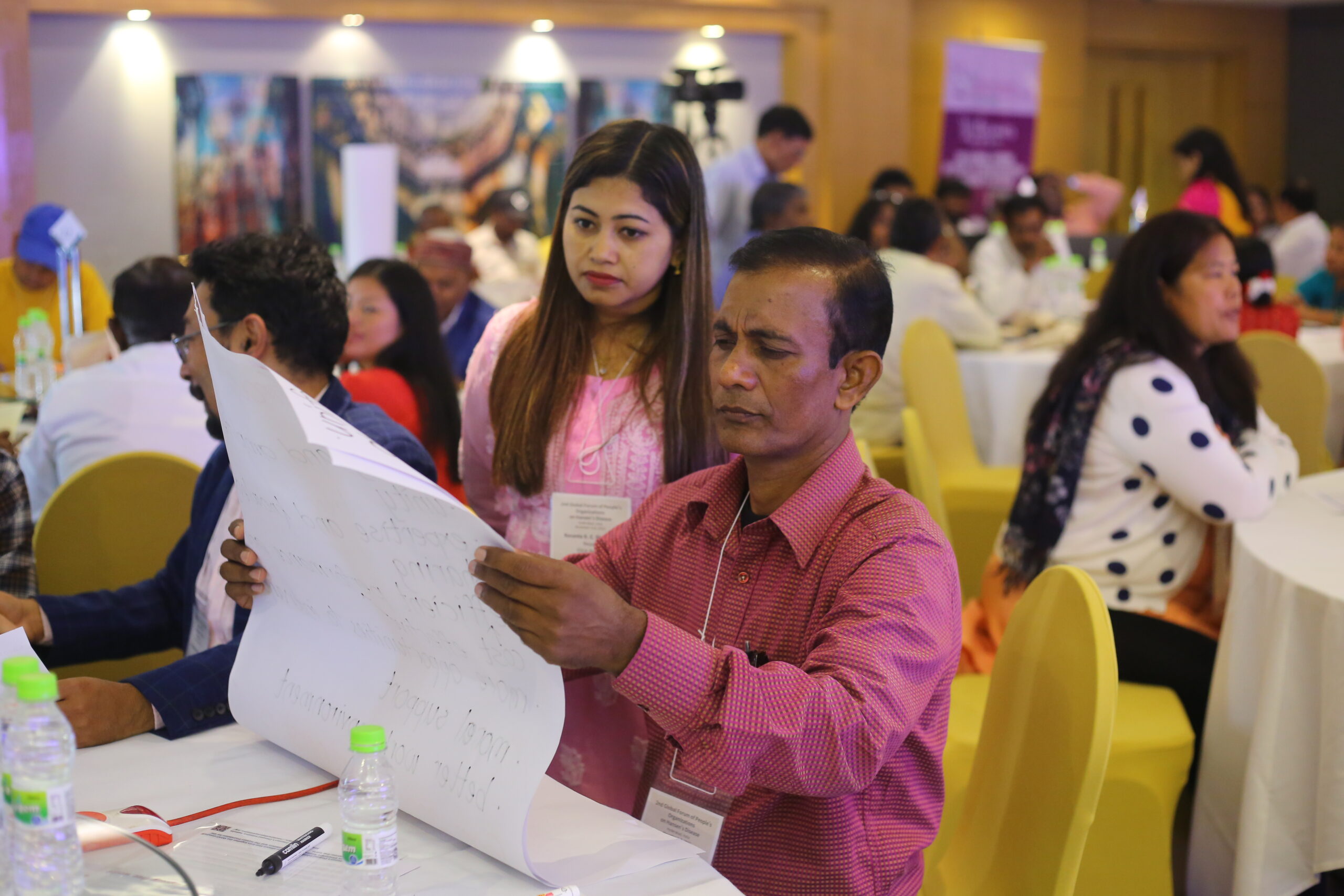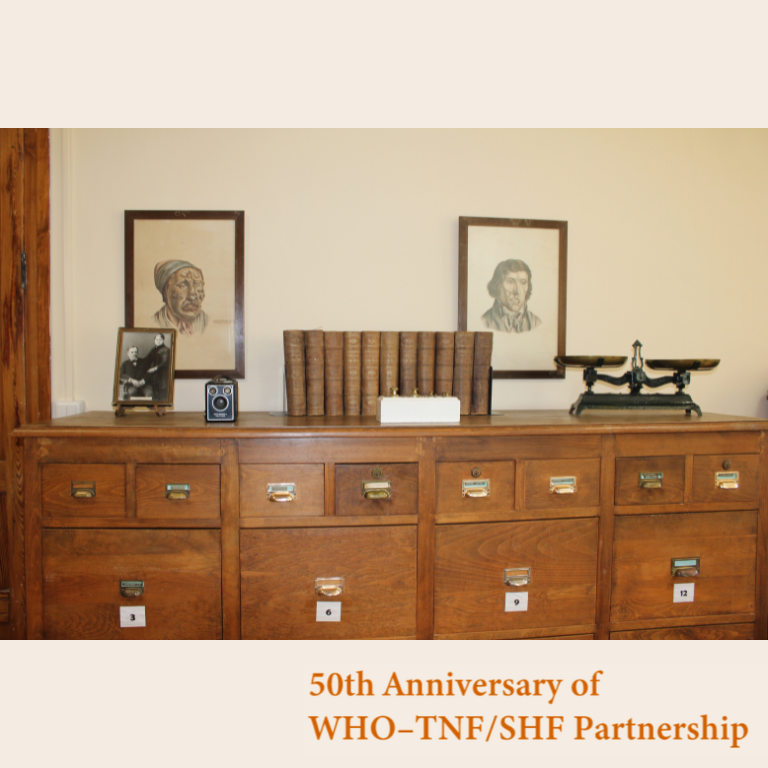Maksuda Khatun’s life story exemplifies what can happen when an individual is given just enough financial or material support to start a business. At the age of 18, Maksuda noticed a white patch on her hand. With help from Lepra, a UK-based charity, she received treatment promptly, but her husband feared the disease and divorced her. She was able to move back to her parents’ house with her young daughter, but she still had to figure out how to support herself.
A sewing machine and some training, provided by Lepra, allowed Maksuda to take her first step as a businesswoman. She worked as a tailor until she made enough money to start a poultry farm. Now her farm has over 1,000 broiler chickens and with the income she was able to support her daughter through completion of a physiotherapy degree. The chickens also help her family to meet their nutritional needs. She has spoken about wanting to establish a garment factory that can involve members of her local self-help group for persons affected by leprosy.
The COVID-19 pandemic has affected all aspects of her poultry business, and she estimates that she has lost more than 400,000 taka (over US$4,500) because of transportation shutdowns and other disruptions. Neighbors, some of whom had enthusiastically opened their own poultry farms after learning from Maksuda, are also seeing their businesses falter. Three farms have closed. With the entrepreneurial know-how that she has gained, Maksuda will do her best to continue being a leader in her community.
